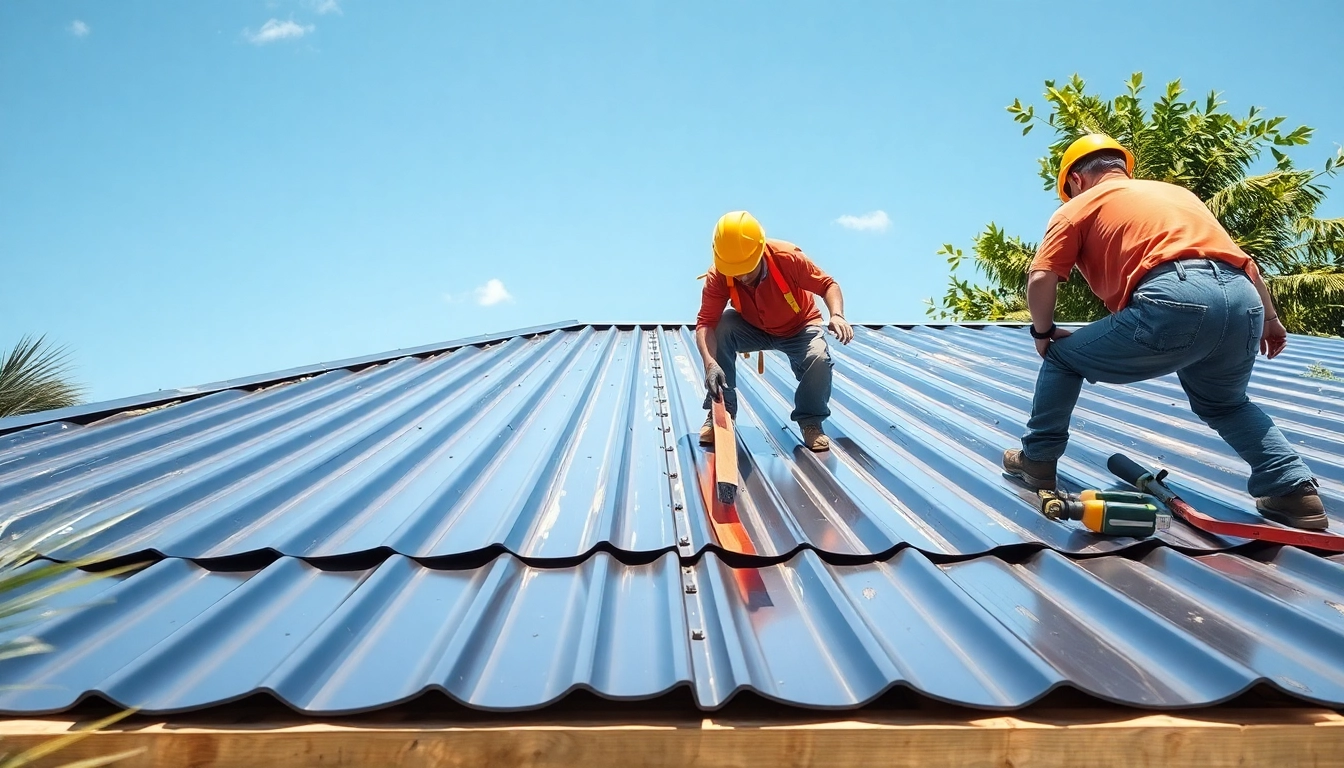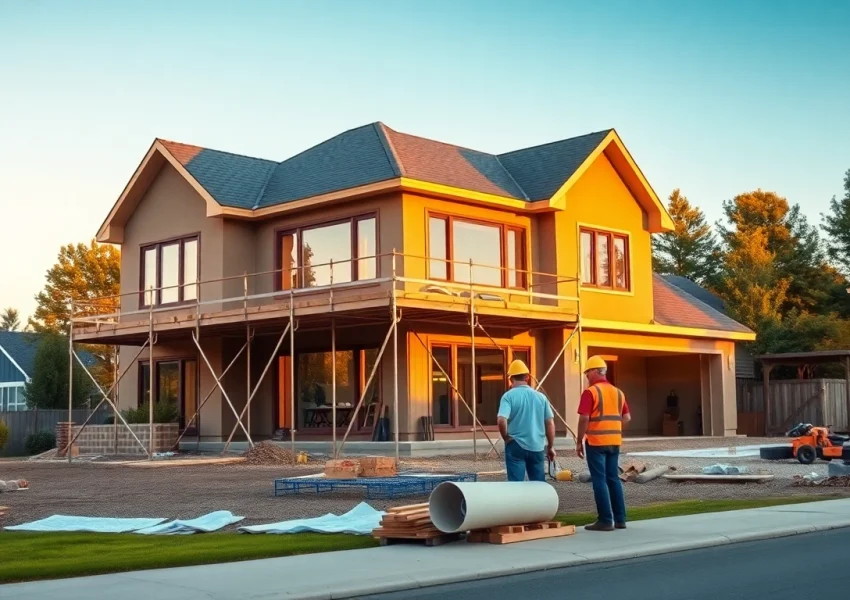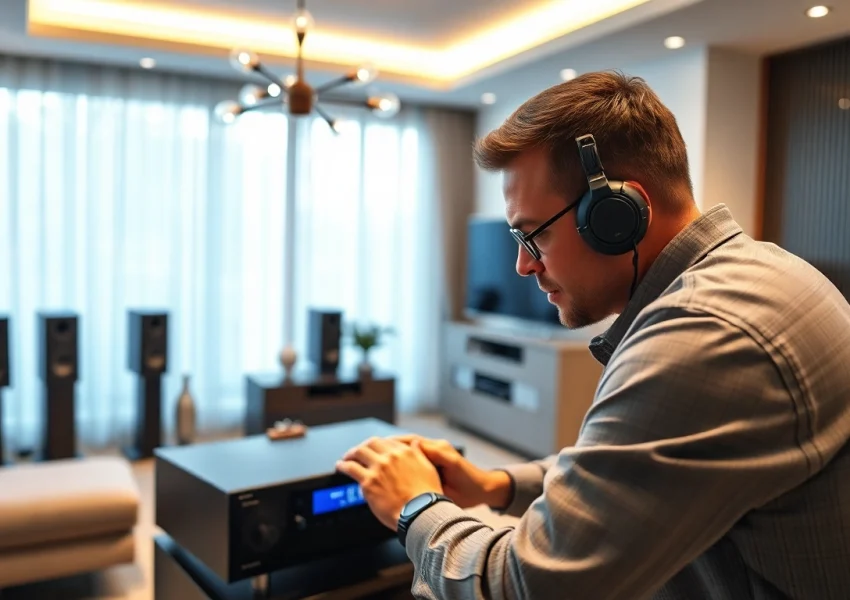1. Understanding Florida Metal Roofing
1.1 What is Metal Roofing?
Metal roofing is a roofing system made from metal pieces or tiles. As a roofing material, it offers a range of materials, such as steel, aluminum, copper, and zinc. Known for its exceptional durability and longevity, metal roofing has gained popularity among homeowners in Florida and other regions. This sturdy option is ideal for the state’s unique climate, characterized by intense heat, high humidity, and the threat of severe storms. Florida metal roofing serves as an investment that can withstand Florida’s diverse weather challenges while providing aesthetic appeal.
1.2 Benefits of Choosing Metal for Florida Homes
Choosing metal roofing for your Florida home comes with numerous benefits. Firstly, its remarkable durability ensures it can last significantly longer than traditional roofing materials. Metal roofs can endure extreme weather conditions, including hurricanes and heavy rain. Secondly, they offer exceptional energy efficiency. Metal roofing reflects sunlight, thus reducing heat absorption and lowering air conditioning costs, which can be high in Florida. Finally, metal roofs are lightweight, reducing the stress on your home’s structure compared to heavier materials like clay or concrete tiles.
1.3 Types of Metal Roofing Materials
Metal roofing materials vary greatly. The most common types used in Florida include:
- Steel: Durable and relatively low-cost, steel roofing is often coated with a layer of zinc to prevent rusting.
- Aluminum: This material is lightweight and highly resistant to corrosion, making it a great choice for coastal areas.
- Copper: Known for its aesthetic appeal, copper develops a green patina over time, adding character. However, it tends to be more expensive.
- Zinc: Similar to copper, zinc roofs are both durable and long-lasting, naturally resisting corrosion without the need for coatings.
2. Advantages of Metal Roofing in Florida
2.1 Energy Efficiency and Cost Savings
One of the standout advantages of metal roofing is its energy efficiency. Particularly in sunny states like Florida, the reflective properties of metal roofs can lead to energy savings. Metal roofing can reduce air conditioning costs by up to 25%. With the intense Florida sun beating down on homes, this energy efficiency can make a noticeable impact on utility bills. In addition, many metal roofing systems are ENERGY STAR® rated, providing even further evidence of their efficiency and cost-saving capabilities.
2.2 Durability Against Harsh Weather
Florida’s weather can be unpredictable; hence, durability is paramount. Metal roofs can handle high winds, with some systems rated to withstand wind speeds of up to 140 mph. They are also resistant to water, which minimizes the risk of leaking. Additionally, metal roofing is non-combustible, which is a crucial benefit, especially in areas prone to wildfires. In contrast to traditional shingles that may degrade under the sun and seek repairs, metal roofs require very little maintenance over their lifespan, further enhancing their durability.
2.3 Environmental Impact and Sustainability
Metal roofing is an eco-friendly option as many types of metal roofing materials are recyclable. When a metal roof reaches the end of its lifespan, it can be reused to create new roofing materials, minimizing waste in landfills. Furthermore, their reflective properties help lower energy consumption, reducing carbon footprints.
Many manufacturers now offer metal roofing made from recycled materials, making it a sustainable choice for environmentally conscious homeowners. This sustainability is increasingly important as more people consider the environmental implications of their building materials.
3. Installation Process of Florida Metal Roofing
3.1 Preparing Your Home for Metal Roofing
Before installing a metal roof, it is crucial to prepare your home adequately. First, a thorough inspection of the existing roofing structure is necessary. Repairs may be needed to ensure the base is sound, especially if you’re replacing an old roof. Ensuring proper insulation is critical as well; metal roofs can attract and hold heat unless adequately insulated. The surface should also be clean, free from debris, and not compromised by previous water damage.
3.2 Professional Installation vs. DIY
While installing metal roofing can be an exciting DIY project for the skilled homeowner, professional installation is often recommended, particularly in Florida. Professionals have the expertise to handle the complexities of metal roofing installation, such as ensuring proper alignment and securing panels correctly to withstand Florida’s weather conditions. DIY installations may also not comply with local building codes, resulting in potential legal complications.
3.3 Common Installation Mistakes to Avoid
To ensure successful metal roofing installation, avoid common mistakes such as:
- Poor Ventilation: Failing to include adequate ventilation can lead to heat buildup and moisture problems, diminishing the roof’s lifespan.
- Incorrect Material Selection: Not all metal roofing is suitable for every climate. Choosing the wrong material can lead to problems down the line.
- Improper Underlayment: Underlayment is critical for protecting the roof. Using insufficient or incorrect underlayment can lead to leaks and damage.
4. FAQ about Florida Metal Roofing
4.1 How Long Does a Metal Roof Last?
Metal roofs are renowned for their longevity. Depending on the type of metal used, they can last between 40 to 70 years, drastically outperforming traditional roofing materials, which may only last 15 to 30 years.
4.2 What are the Costs Involved?
The cost of installing a metal roof in Florida typically ranges between $18,000 to $45,000 for an average-sized home. Factors affecting cost include materials, labor, and the complexity of the installation. It’s always wise to obtain multiple quotes from licensed contractors to ensure competitive pricing.
4.3 Can Metal Roofs Rust?
Modern metal roofing is designed to resist rust and corrosion. While rust can be a concern for some older metal types, many roofing systems used today, especially those made from aluminum or with protective coatings, provide excellent rust resistance. Routine maintenance, such as cleaning debris from the roof’s surface, can further mitigate rust concerns.
5. Choosing the Right Metal Roofing Supplier in Florida
5.1 Key Factors to Consider
When selecting a metal roofing supplier in Florida, consider factors such as:
- Reputation: Look for suppliers with positive customer reviews and a strong local presence.
- Product Range: A good supplier should offer a variety of materials and styles to choose from.
- Warranty and Support: Ensure the supplier provides comprehensive warranties and has a solid customer service policy in place.
5.2 Top Metal Roofing Suppliers in Florida
Some reputable metal roofing suppliers operating in Florida include:
- Gulf Coast Supply: Known for its extensive range of roofing materials and exceptional customer service.
- Mid Florida Metal Roofing Supply: Offers a wide variety of metal roofing products tailored to meet various needs.
- Tri County Metals: Provides durable metal roofing options suitable for all types of construction projects.
5.3 Customer Reviews and Recommendations
Reading customer reviews can provide valuable insights into the reliability and quality of products offered by suppliers. Look for testimonials on social media platforms, Google reviews, and home improvement forums. Recommendations from friends or family members who have experience with local suppliers can also guide your decision-making process.






